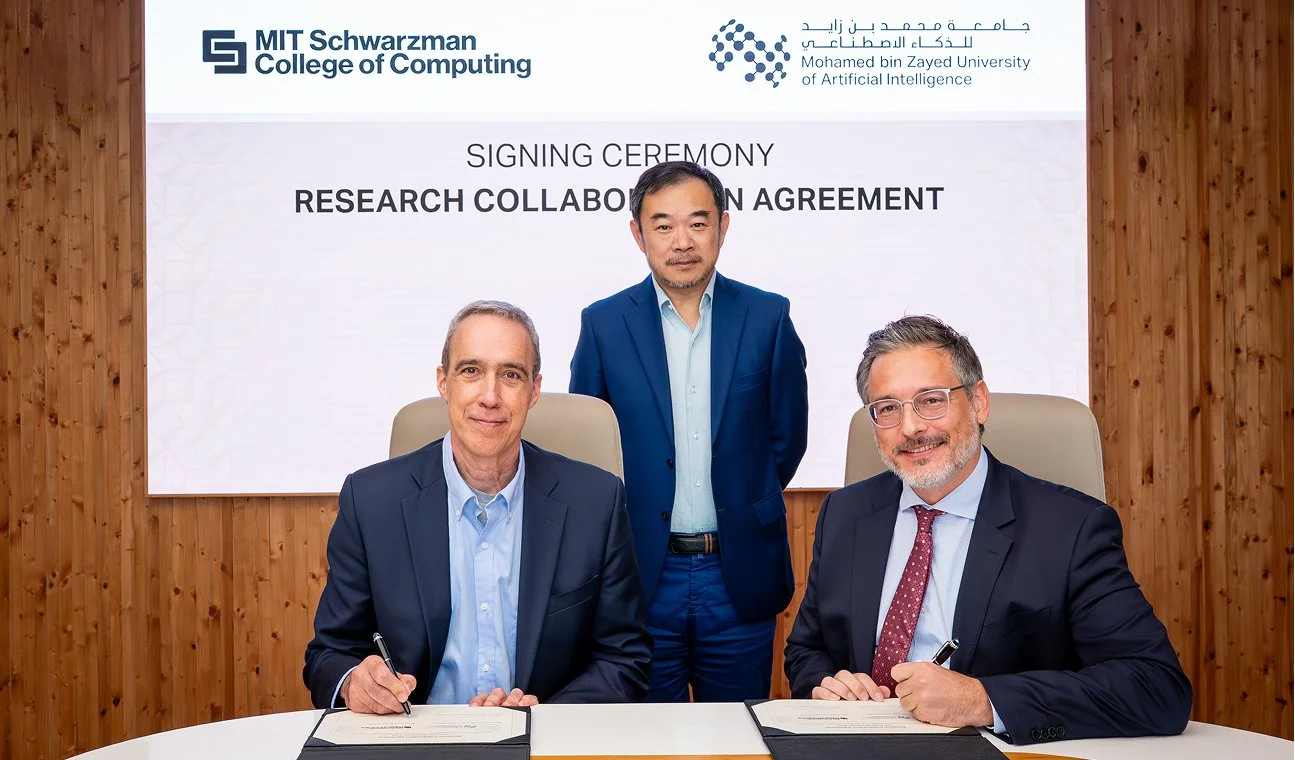MIT Schwarzman College of Computing and MBZUAI have launched the MIT–MBZUAI Collaborative Research Program, bringing researchers from both institutions into joint projects.
The initiative will run multi-year studies focused on applying AI to science, health, and energy-efficient systems.
Eric Xing, President of MBZUAI, took to social media to underline the scope of the agreement. In his LinkedIn post, Xing wrote that this was the university’s “first major bilateral partnership with leading universities in the U.S.,” adding that it would focus on “mission-driven multiyear large projects in AI, health, robotics, and energy.” He described the partnership as an opportunity to “advance the frontier of AI and AI4Sci” by combining expertise and infrastructure across continents.
Research to be co-led in Cambridge and Abu Dhabi
Each project will be headed by a principal investigator from MIT and MBZUAI. Le Song, Professor of Machine Learning at MBZUAI, and Philip Isola, Associate Professor at MIT, will act as academic directors. Areas of work include digital health, robotics, and sustainable AI computation.
Xing says: “This agreement will unite the efforts of researchers at two world-class institutions to advance frontier AI research across health, robotics, and efficient computing. By combining MBZUAI’s focus on foundation models and real-world deployment with MIT’s depth in computing and interdisciplinary innovation, we are creating a transcontinental bridge for discovery.
“Together, we will not only expand the boundaries of AI science but also ensure that these breakthroughs are pursued responsibly and applied where they matter most — improving human health, enabling intelligent robotics, and driving sustainable AI at scale.”
Daniel Huttenlocher, Dean of the MIT Schwarzman College of Computing, says: “Our collaboration with MBZUAI reflects a shared commitment to advancing AI in ways that are responsible, inclusive, and globally impactful. Together, we can explore new horizons in AI and bring broad benefits to society through scientific discovery, human thriving, and sustainability.”
Sami Haddadin, Vice President for Research at MBZUAI, says: “This collaboration marks a pivotal step in advancing frontier AI research by combining the unique and complementary expertise of our two global AI powerhouses. By uniting digital health, robotics, and efficient computing to build multi-scale biological foundation models of the human body we can accelerate the discovery process itself and create possibilities for a new era of healthcare innovation while reducing costly lab work and data generation at scale.”
The ETIH Innovation Awards 2026

